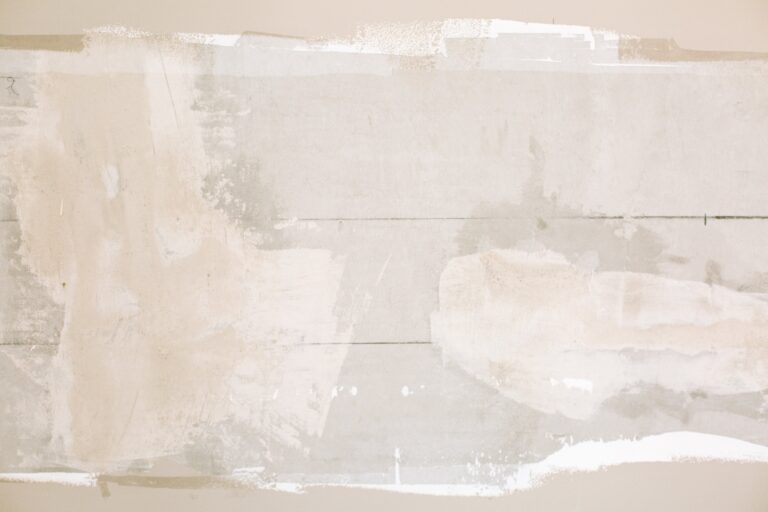Paint thinner is a volatile organic compound that is used to remove paint from surfaces. It is also used as a cleaning agent and as a solvent for other chemicals. Paint thinner has a strong, pungent odor that can be irritating to the nose and throat.
The fumes from paint thinner can also be harmful to your health if inhaled.
Have you ever wondered what paint thinner smells like? If so, you’re not alone. Many people are curious about the scent of this common household product.
Paint thinner is a volatile organic compound (VOC), which means it contains chemicals that can easily evaporate into the air. When these VOCs are released, they can cause a strong smell that some people find unpleasant.
So, what does paint thinner smell like?
It typically has a sharp, pungent odor that is similar to gasoline or solvent fumes. This scent can be overpowering and may cause headaches, nausea, or dizziness in some people.
If you’re sensitive to strong smells, it’s best to avoid using products that contain paint thinner.
However, if you do need to use this product, be sure to work in a well-ventilated area and open all the windows and doors for ventilation.
Smelling Paint Thinner When There is None
Have you ever been walking through your house and suddenly smelled paint thinner, even though there is no evidence of any? If so, you’re not alone. Many people have reported this phenomenon, which is often associated with a feeling of unease or anxiety.
So what’s going on here? One theory is that our brains can sometimes “trick” us into smelling things that aren’t really there. This may be due to a combination of factors, including stress, fatigue, and low blood sugar.
It’s also possible that some people are more susceptible to this type of illusion than others.
Whatever the cause, if you find yourself smelling paint thinner (or anything else) when there’s no logical explanation, try to relax and remember that it’s probably just your imagination playing tricks on you.
My House Smells Like Paint Thinner Or Nail Polish
If you’ve ever noticed that your house smells like paint thinner or nail polish, there’s a reason for that. These strong odors are actually caused by the off-gassing of volatile organic compounds (VOCs). VOCs are chemicals that are released into the air as gases from certain solids or liquids.
They can be found in many common household products, including paints, cleaning supplies, and personal care products.
While most VOCs are not harmful at low levels, some can cause health problems like headaches, dizziness, and nausea. In high concentrations, they can even cause cancer.
That’s why it’s important to ventilate your home well when using products that contain VOCs. And if you notice a strong smell coming from a particular product, it’s best to avoid using it indoors.
So if you’re wondering why your house smells like paint thinner or nail polish, now you know!
And remember to take steps to ventilate your home properly when using products that contain VOCs.
Smelling Paint When There is None
We’ve all been there. You’re in your home, minding your own business, when you suddenly catch a whiff of paint fumes. But when you look around, there’s no evidence of any painting going on.
So what gives?
It turns out that this phenomenon is more common than you might think. And there are a few possible explanations for it.
One possibility is that you’re experiencing something called olfactory hallucination. This happens when your brain misinterprets signals from your nose, causing you to smell things that aren’t actually there. Olfactory hallucinations can be triggered by certain medications, mental health conditions, or even sleep deprivation.
Another possibility is that you’re smelling volatile organic compounds (VOCs) that have been released into the air from new paint or other building materials in your home. VOCs are chemicals that can cause short- and long-term health effects, so it’s important to ventilate well if you’re doing any painting or renovating in your home.
So if you suddenly find yourself smelling paint fumes with no explanation, don’t freak out!
It’s probably nothing to worry about. But if the smell persists or starts to bother you, it’s always best to check with a doctor or other healthcare professional just to be sure.
Paint Thinner Smell in House Dangerous
If you have paint thinner smell in your house, it is important to take action immediately. Paint thinner is a highly flammable liquid and the fumes can be dangerous to your health. Inhaling the fumes can cause dizziness, headaches and nausea.
If you are exposed to high levels of paint thinner fumes, it can lead to death.
If you suspect that there is a paint thinner leak in your home, evacuate immediately and call 911. Do not try to find the source of the leak yourself.
Once you are out of the house, open all the doors and windows to air out the area. If possible, move to an upwind location.
If you or someone else has been exposed to paint thinner fumes, remove any clothing that has come into contact with the substance and wash it thoroughly with soap and water.
Rinse off any exposed skin with cool water for 15 minutes. Seek medical attention if you are feeling dizzy or lightheaded.
Paint thinners are extremely dangerous chemicals and should be used with caution.
If you have any concerns about exposure to paint thinner fumes, please contact your local poison control center or emergency room immediately.
Bathroom Smells Like Paint Thinner
If you’ve ever walked into a room and been immediately hit with the smell of paint thinner, you know how overwhelming it can be. But what exactly is paint thinner, and why does it make your bathroom smell like that?
Paint thinner is a solvent used to thin oil-based paints and remove them from brushes.
It’s also used for cleaning up after painting projects. Paint thinner smells strongly because it’s made from petroleum products. When you use it in your bathroom, the fumes can linger and make the whole room smell bad.
To get rid of the smell of paint thinner in your bathroom, open all the windows and doors to air out the room. You can also try using a fan to help circulate the air. If the smell persists, you may need to repaint or seal off the area where you were using the paint thinner.
In extreme cases, you may need to call in a professional to clean or ventilate your bathroom properly.
Does Paint Thinner Smell?
Paint thinner does have a smell, and that smell can be quite strong. Many people describe the smell as being similar to gasoline or other harsh chemicals. The odor is caused by the volatile organic compounds (VOCs) that are present in paint thinners.
These VOCs can be harmful to your health if you’re exposed to them for long periods of time, so it’s important to use paint thinners in well-ventilated areas.
Does Paint Thinner Smell Strong?
There’s no denying that paint thinner has a strong smell. But what exactly is this odor? And why does it linger so long after you’ve finished painting?
The main component of paint thinner is mineral spirits, which is a petroleum-based solvent. When you open a can of paint thinner, you’re releasing volatile organic compounds (VOCs) into the air. These VOCs are what give paint thinner its characteristic smell, and they can also be harmful to your health.
Paint thinners are often used to clean up after painting projects, but they can also be used to remove old paint from surfaces before repainting. If you’re using paint thinner for this purpose, be sure to ventilate the area well and wear a respirator to avoid inhaling fumes.
So why does the smell of paint thinner linger long after you’ve finished using it?
This is due to something called “migration.” Migration is when VOCs travel through the air and settle on surfaces where they weren’t originally released. This can happen even if you’re using low-VOC or zero-VOC products.
To avoid migration and the lingering smells it can cause, make sure to use paint thinners in well-ventilated areas and always follow manufacturer’s instructions.
What Would Smells Like Paint Thinner in My House?
There are a few things that could be causing the smell of paint thinner in your house. It could be that someone was using paint thinners near an open window or door and the fumes drifted into your home. Or, it’s possible that there is a small leak in a can or container of paint thinner somewhere in your house.
If you suspect a leak, it’s important to find and fix it immediately as exposure to these fumes can be dangerous.
If you can’t identify the source of the smell, try opening windows and doors to air out your house. You may also want to consider running an air purifier to help remove the fumes from the air.
If the smell persists, contact a professional for help in finding and fixing the problem.
Is Thinner Smell Harmful?
When it comes to smell, there is no one-size-fits-all answer. Some people are more sensitive to smells than others and can find even pleasant smells overwhelming. However, for most people, thinner smell is not harmful.
Thinners are used in a variety of products, from paint to cleaning supplies. They help to dissolve or break down other materials and make them easier to work with. Most thinners contain solvents like petroleum distillates or mineral spirits, which can give off strong fumes.
If you’re using products containing thinners, it’s important to work in a well-ventilated area and take breaks if you start feeling dizzy or nauseous. In general, it’s best to avoid inhaling any fumes whenever possible. If you’re concerned about the safety of thinner smell, talk to your doctor or a local poison control center.
Conclusion
Paint thinners have a strong, distinctive smell that is often unpleasant to people. The odor is caused by the chemicals in the paint thinner, which are released into the air when the product is used. Paint thinners are typically used to clean up after painting projects, and they can also be used to remove paint from surfaces.

